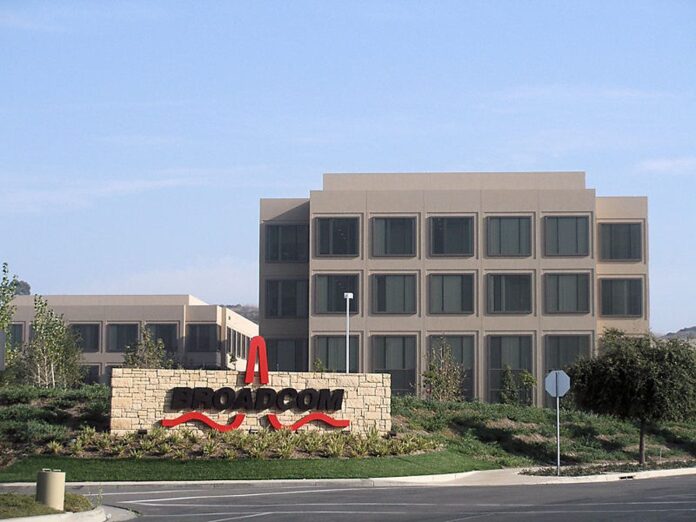Broadcom Software Group to rebrand as VMware
Broadcom Inc. on Thursday announced plans to acquire VMware in a cash and stock transaction valued at $61 billion, confirming rumors reported over the weekend that the two companies were in acquisition talks. The deal represents a 32% premium over VMware’s average stock price before the rumor. Broadcom hopes to complete the transaction in its fiscal year 2023, subject to closing conditions.
Hock Tan, Broadcom president and CEO, said the acquisition will help Broadcom “reimagine what we can deliver to customers as a leading infrastructure technology company.”
Indeed, Broadcom’s revenue shifts fundamentally upon this transaction’s completion. VMware reported $11.8 billion in revenue last year. That dwarfs the $7.07 billion revenue reported by Broadcom’s own enterprise software group, which will be renamed VMware, according to the company.
“Combining our assets and talented team with Broadcom’s existing enterprise software portfolio, all housed under the VMware brand, creates a remarkable enterprise software player,” says Raghu Raghuram, CEO of VMware.
With VMware joining Broadcom, 49% of its annual revenue will come from enterprise software. Broadcom last expanded its burgeoning enterprise software portfolio in 2019 with a $10.7 billion acquisition (and subsequent sale to Accenture) of Symantec’s enterprise security software business. Broadcom acquired security and database software company CA Technologies in 2018 for $18.9 billion. It was also in 2018 that Broadcom unsuccessfully attempted to take over rival Qualcomm, ultimately rebuffed by the Trump administration.
Under the terms of the deal, already agreed to by both company’s boards and 40.2% shareholder Michael Dell and 10% owner equity firm Silver Lake, VMware shareholders will elect to receive either $142.50 in cash or 0.2520 shares of Broadcom common stock for each VMware share. Broadcom assumes $8 billion in net debt from VMware as well. Broadcom noted that it’s obtained $32 billion in debt finance commitments to make the deal happen.
Founded in the late 1990s, VMware pioneered the virtualization market. Its virtualization and hypervisor software is used extensively in enterprise IT to enable virtual machines to operate on servers. And while its spinoff from Dell was only last year, this is mostly par for course for VMware, which has seen a few different corporate owners since its inception.
After building momentum through the early oughts, VMware was acquired by EMC Corp. in 2004 for $635 million. There the company sat until 2016, when Dell acquired VMware as part of its $67 billion EMC acquisition: one of the biggest enterprise mergers in history, at the time.
Dell spun VMware off again in 2021. The company was valued at about $40 billion at the time. VMware reported $12.85 billion for FY2022, up 9% year over year, reporting $1.82 billion in GAAP net income for the same period. Revenue from subscription licenses and Software as a Service (SaaS) was a bright point on the company’s annual balance sheet — up $6.33 billion, a 13% year-over-year increase.
VMware added containerized workload support in 2019 and has since made inroads to telecom with products like its own Telco Cloud Platform. In April, VMware announced that it was validating Ericsson’s 5G Core to run on Telco Cloud Platform. The validation will confirm that VMware’s platform can onboard and host Ericsson’s 5G Core Cloud Native Functions (CNFs), it said. VMware’s also staking a claim in the Open RAN/vRAN market with Telco Cloud Platform RAN. The company counts companies like Dish Network, Vodafone and Italian operator TIM among its Open RAN customers.
VMware has moved to meet the burgeoning enterprise demand for seamless hybrid cloud and multi-cloud deployments: a point VMware supports all major public cloud vendors and has partnerships with many others across the globe. This new enterprise software clout with Broadcom will help customers navigate multi-cloud deployments, said VMware’s Raghuram.

